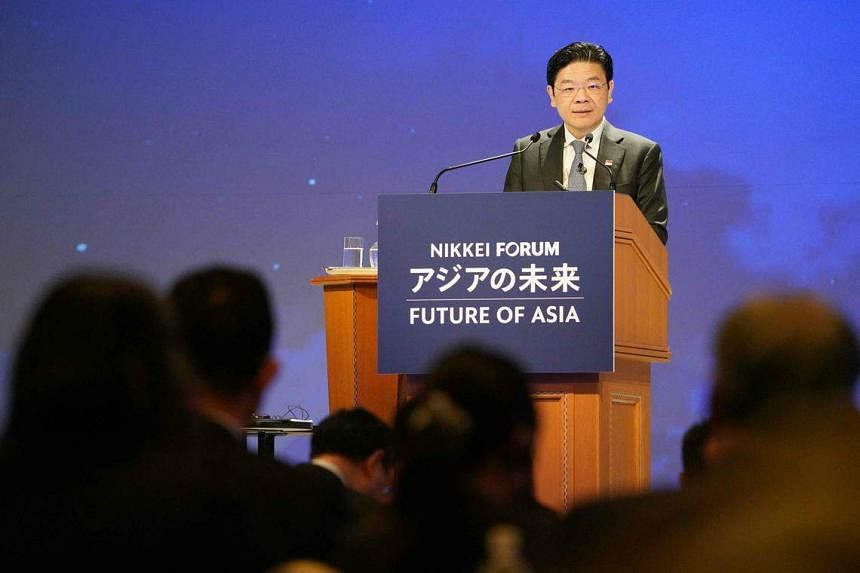
TOKYO – The calls to “de-risk” – rather than “decouple” – from China could just as well lead to a more fragmented and decoupled world economy, warned Singapore’s Deputy Prime Minister Lawrence Wong on Thursday.
“It is hard to see how de-risking, at its current ambition and scale, can be strictly confined to just a few strategic areas without affecting broader economic interactions,” said Mr Wong.
“If de-risking is taken too far, it would prompt reactions and unintended consequences. Over time, we will end up with a more fragmented and decoupled global economy.”
Addressing business leaders, academics and the media at the annual Nikkei forum Future of Asia, Mr Wong took on the latest language that had emerged at the recently concluded Group of Seven (G-7) summit of advanced economies in Hiroshima last week.
Leaders introduced the term “de-risking” in their communique for the first time, seeking to paint this in a more positive and less aggressive light than their previous term du jour – “decoupling”.
The G-7 statement said: “Our policy approaches are not designed to harm China nor do we seek to thwart China’s economic progress and development.”
It added: “We are not decoupling or turning inwards. At the same time, we recognise that economic resilience requires de-risking and diversifying.”
The G-7 leaders said that de-risking is different from decoupling, and that the former means reducing “excessive dependencies” in critical supply chains, such as by not over-relying on any country for the supply of materials or as a market.
China has lashed out against their statement, viewing it as a euphemism for containment.
In his speech, Mr Wong, who is also Finance Minister, acknowledged that it is understandable why countries and companies seek to de-risk or diversify. “No one wants to be overly reliant on a single supplier for raw materials, key components, or technology,” he noted.
But he observed how geopolitical lines are clearly starting to be drawn.
There are signs of global foreign direct investment flows “becoming more concentrated among countries that are geopolitically aligned”, he said. This marks a significant change from the last three decades of globalisation, when investors allocated capital based on business considerations, and firms established footprints all over the world and linked up in global supply chains.
“Where we used to talk about trade as win-win, zero-sum competition is now becoming normalised across multiple domains, from trade and investment to finance and critical technologies such as semiconductors,” Mr Wong said.
“A fragmented global economy will split the world into competing regional blocs,” he added. “There will be less trade, less investments, and less diffusion of ideas – crucial ingredients which have helped our economies to advance.”
https://news.google.com/rss/articles/CBMihgFodHRwczovL3d3dy5zdHJhaXRzdGltZXMuY29tL2FzaWEvZWFzdC1hc2lhL2RlLXJpc2tpbmctdGFrZW4tdG9vLWZhci13aWxsLWxlYWQtdG8tZnJhZ21lbnRlZC1hbmQtZGVjb3VwbGVkLXdvcmxkLWVjb25vbXktbGF3cmVuY2Utd29uZ9IBAA?oc=5
2023-05-25 03:45:44Z
2060099947
Tidak ada komentar:
Posting Komentar